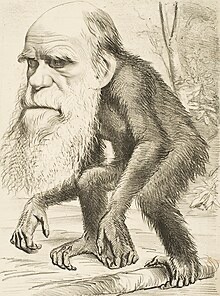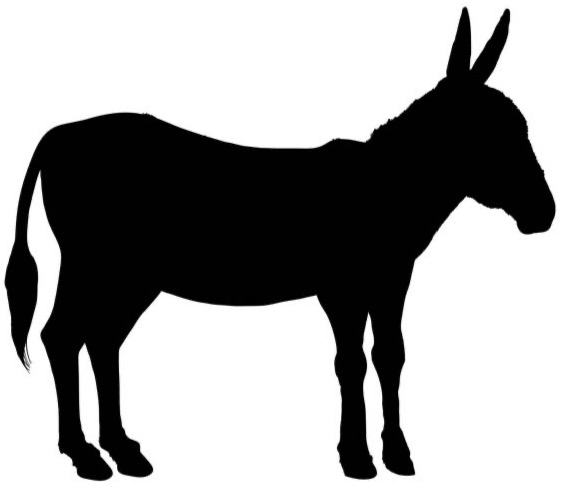What Happens When An Unstoppable Force Meets An Immovable Object?

Darwin Happens
I’m gonna chime in on the chorus here: Charles Darwin’s a charlatan. A con artist. Natural selection, you say? Bah. The man’s a narcissistic, self-aggrandising perverter of that which had already been naturally selected. Namely, the Truth!
We all know he ripped off Alfred Russel Wallace. Chap sent him an essay, and Darwin says “Yup, I already had that idea already yesterday. Already. So let’s tell people together. Because I had that idea already.” Stole the limelight.
Let’s aside all that a second, and sit with Lucretius a moment. Looo-kree-shus? Yup. Barely a few days before Mr Christ popped onto the scene, Lucretius penned out this most epic poem about the most transcendent beauty he could think of: physics. God he must’ve been dull around the dinner table.
He’s got his atoms falling perfectly straight downwards forever and ever, creating this masterpiece of illusion that we call the world. He’s a materialist. It’s all atoms. His poem was called ‘On the Nature of Things’. His one-word answer: atoms.
Which is fine. Everything’s atoms. Whatever. Great. Now listen up, because this is where it gets real interesting.
Some of his atoms get, how do I put this, a little drunk. They forget to keep falling down straight forever and every now and again one impulsively veers to the left and bumps into another atom. They collide. And that collision causes a ripple in the universe kind of thing. Which we see as something.
Otherwise everything the same everywhere is nothing, isn’t it? But we see something. So it can’t be the same everywhere. If it’s all atoms going in the same direction at the same speed everywhere, everything’s all the same. So if the atoms get a little drunk every now and again and collide, they make something different.
You don’t see where I’m going with this, do you?
Lucretius, two thousand years ago, was already saying: evolution. The Darwin-Wallace theory of evolution by natural selection is the idea that these genes copy perfectly every time, all the time. Except some occasionally get a little drunk and don’t copy so perfectly. Genetic mutation is the phrase they coined here.
How apt. Lucretius’ cosmology has just mutated into Darwin’s biology – it’s all the same all the time forever and ever and ever. Until someone gets drunk and makes it all different. And they had the balls to call their stolen idea itself ‘mutation’.
The idea that we can explain the nature of any of these phenomena by saying “Everyone did the same thing always and forever and so there was nothing, but Fred got a little tipsy after work on Tuesday so now this” is a hollow argument.
If you have even the most basic grasp of modern physics, you’ll know that we don’t think Lucretius’ little poem is in any way accurate. It’s not all atoms falling down and some colliding. Einstein won’t be revisiting any of his equations. Lucretius’ argument, beautifully fleshed out and articulated as it was, was bollocks. If you’re gonna take Lucretius’ word over Einstein’s, that puts you squarely in the flat-Earth camp. Crack on.
“…What happens when an unstoppable force meets an immovable object?” asked the Joker in the film The Dark Knight. One of those mind-bend questions like “If a tree falls with no one to hear it, does it make a sound?”
Great question. Might be nonsense, but sounds pretty cool. Einstein will tell you that it’s all perspective. Is the train going past the platform, or is the platform actually going past the train? Spooky. But an unstoppable force implies infinite speed, which requires infinite mass, which isn’t possible, which brings us back to nonsense. Perspective.
The answer to the Joker’s question is: evolution. Evolution happens when an unstoppable force meets an immovable object. Because in that moment you realise the illusions you lived by to think either this was unstoppable, or that was immovable, were wrong.
You were wrong.
The world was never like that, you just thought it so. And then you lived by it. You’ll have to evolve your ideas of the world. And if you’re being honest about what’s going on, you’ll evolve your ideas about your own self.
It’s not that I don’t believe in the idea of evolution by natural selection. I live by it. Christ, I’m quite happy to chomp down the antibiotics when I need them. And with them I take the body of science that gave me them, from Darwin and Mendeleev to, I don’t know, Watson and Crick.
But what I won’t do is take them for truth. These ideas are nothing but tools that, from a certain perspective, can help interact with, and predict, the world. But they have no basis in actual reality. They are a what the Ancients would call a Second-Order Truth, dependent on this and, ultimately, we reckon to be superseded by that when it comes along.
The ancient Hindu Mundaka Upanishad calls science, maths, philosophy, history, all Second-Order Truths. Don’t mistake them for the First-Order Truth. ‘Aletheia’, Parmenides called that First-Order Truth. ‘Cosmic Mind’ called it Anaxagaros. A thousand names it has gone by.
If you can’t see the limitation of your system, you’re too far in. You’re living in that Second-Order Truth. And the problem with that, well, if it ain’t real your world gonna crumble fairly soon. Not fun.
There is a boundary to the world you have constructed. Find it.
There you will find growth. You will no longer be the falling on a predetermined path down forever with no control. You’ll wake up as Fred and get drunk after work on Tuesday.
Who knows what happens when you’ll veer left?


Post a comment